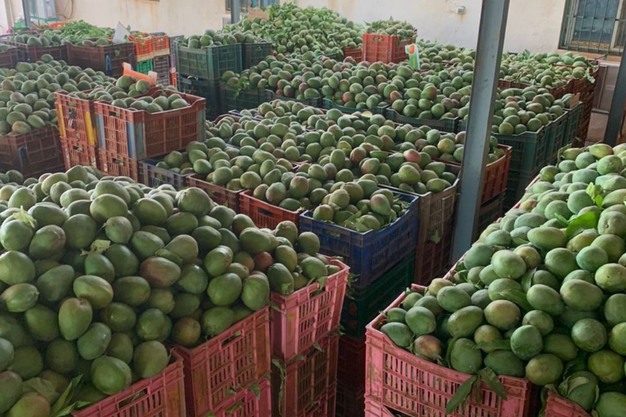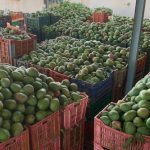Last season, exports of Malian mangoes to the European Union were characterized by consistent volume, which was higher than that of other West African origins. However, there was a significant number of interceptions and phytosanitary alerts, exceeding fifty shipments. In response, the European Union temporarily banned all Malian mango imports.
The Malian Ministry of Agriculture has summoned a meeting of stakeholders, including food safety authorities, technical partners, and producers, to be held on September 24, presenting a long and comprehensive action plan at the meeting. According to Naman Keita, a producer-exporter and the CEO of Agroplus Mali, the plan is a step in the right direction, but it comes very late.
 © Naman
© Naman
According to Keita, the direct cause of the interceptions is the fruit fly phenomenon that occurred early last season due to the early arrival of the rainy season. He adds, “Shipment interceptions began in Europe at the very beginning of the Kent mango season. It has to be said that there has been a significant delay of nearly ten years in treating orchards. This vulnerability to fruit flies became evident last season.”
Echoes from a national workshop attended by producers suggest that the interception of Malian mangoes was met with silence in Mali, prompting the European Union to proceed with the radical measure of a complete ban. Keita confirms, “There was a lack of responsiveness and communication on the part of the control authorities in Mali, as well as the interprofessional body of producers and other sector stakeholders. It was necessary to respond and explain to our European partners as soon as the first alert was issued, as had been done previously. In 2016, for example, Malian authorities reacted quickly to the first alert, which helped preserve the reputation of Malian mangoes and ensure the continuation of the export campaign.”
Due to insufficient communication from the Malian side, European food safety authorities overestimated the phytosanitary damage, according to Keita. He adds: “The number of interceptions and alerts, around 63 cases, is not representative and is overestimated. We have doubts regarding the counting method because it includes mangoes seized from individuals transporting them in their personal luggage outside the export system. In this regard, I don’t believe the European Union has shown any indulgence.”
This major incident could damage the reputation of Malian origin in other markets, such as Morocco. Keita, who mainly exports to the Moroccan market, a ssures: “This will naturally undermine the confidence of importers and authorities in other markets, but I want to make it clear that the mangoes exported to Morocco are harvested very early in the season, before the rains arrive, and they are of the Amélie variety, which is harvested well before the Kent variety, the subject of European interceptions. Once again, our authorities must do what is necessary to reassure our Moroccan partners.”
The action plan mandated by the Malian Ministry of Agriculture, which encompasses a wide range of measures over a 12-month period, serves as a pivotal roadmap for reentering the European market, according to Keita. The plan includes updating the national fruit fly surveillance plan, evaluating the monitoring and processing of data on Bactrocera dorsalis (priority quarantine pests for the EU) and Ceratitis capitata, and strengthening communication, cooperation, and collaboration in the mango sector. Keita comments, “We hope that this episode will be behind us as soon as possible. Implementation of the action plan has already begun, but large-scale testing will certainly take time.”
Regarding the need to restructure the mango interprofession in Mali, a key request supported by growers and exporters, Keita responds: “This is one of the most urgent needs that has emerged from this crisis. We must revitalize this important organization and equip it with the necessary mechanisms for collective and efficient management of the industry and handling alerts and complaints from our partners.”
“I remain optimistic about the rapid restructuring of the sector and correcting this situation. This is important for both Malian exports and the European market, where the origin of mangoes is important in terms of annual volumes,” Keita concludes.
For more information:
Naman Keita
Agroplus-Mali
Tel: +22374042671
Email: [email protected]
www.agroplus-mali.com
